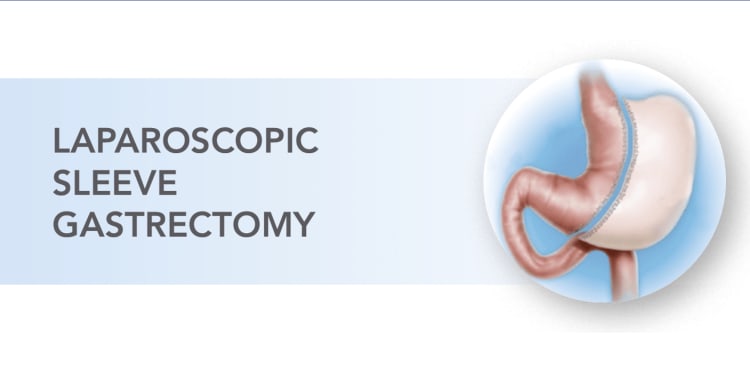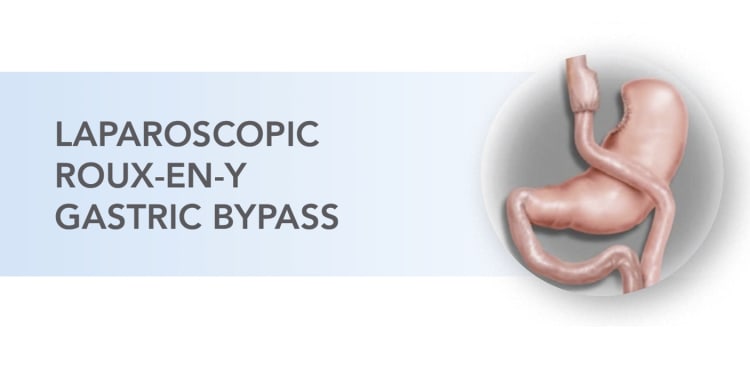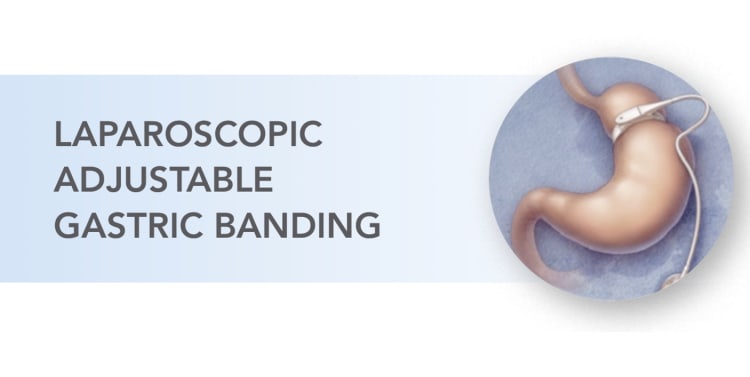Weight Loss Surgery Options: Gastric Bypass and Sleeve Gastrectomy
Weight Loss Surgery Options: Gastric Bypass and Sleeve Gastrectomy Main Content

During the past 20 years, there’s been a revolution in surgery, and weight loss procedures have never been safer. At Baptist Health, we use minimally invasive techniques and enhanced recovery protocols to help you heal quicker.
Minimally Invasive Bariatric Surgery: Long-Term Success
We use minimally invasive approaches, such as laparoscopy and robotic surgery. These techniques with small incisions mean less bleeding, lowered risk of infection, less pain, shorter hospital stay and a quicker recovery. Typically, patients stay in the hospital overnight after bariatric surgery, and most go home the next day. In some special cases, patients could go home the same day.
Content Section 1
Types of Weight Loss Surgery
Together, you and your surgeon will discuss which procedure is right for you.
-

Sleeve Gastrectomy
The sleeve gastrectomy is the most common procedure for morbid obesity. It restricts the amount you can eat, and there are also hormonal changes that positively affect hunger and feeling full.
-

Gastric Bypass
Gastric bypass continues to be one of the most popular types of weight loss surgery in the country, and for good reason. Its exceptional potential for weight loss and improvement or remission of type 2 diabetes make it appealing. It's also the most effective for people with severe gastroesophageal reflux disease (GERD).
-

Gastric Banding Revisions
LAP-BAND® and Realize® were 2 common gastric banding systems that are now unpopular due to disappointing results. While we no longer place gastric bands, we do help patients who are having issues such as GERD, or are considering other weight loss options.
Content Section 2
What You Can Expect for Surgery
- Support before, during and after surgery
- Knowing exactly what to expect at the hospital
- A team to help you prepare for what to do when you get home in the days after surgery, with help always a phone call away
- Post-surgery follow-up visits at 2 weeks, 3 months, 6 months, 12 months, then yearly.
Food & Nutrition After Surgery
- After surgery, you will eat small portions of healthy food and exercise regularly with cardio and weight resistance exercises.
- You'll supplement your diet with a multivitamin, vitamin B12, calcium and Vitamin D, and possibly iron.
Content Section 3
Enhanced Recovery After Surgery
Bounce back quicker after surgery.
ERAS, short for Enhanced Recovery After Surgery, is an innovative approach to surgery that is resulting in improved outcomes for patients. Changes to the traditional routines before, during and after surgery at Baptist Health are helping people recover faster.

Content Section 4
Take the First Step
Hear from the experts to find out if bariatric surgery is right for you.
It looks like there was a problem
Try going back and resubmitting the form.
Thank you for submitting your request
We appreciate you taking the time to reach out to us. Our team is currently reviewing your submission and will be in touch shortly with the next steps. Thank you for choosing us, and we look forward to assisting you soon!
Physicians providing care at our hospitals are not employees or agents of the hospital.
